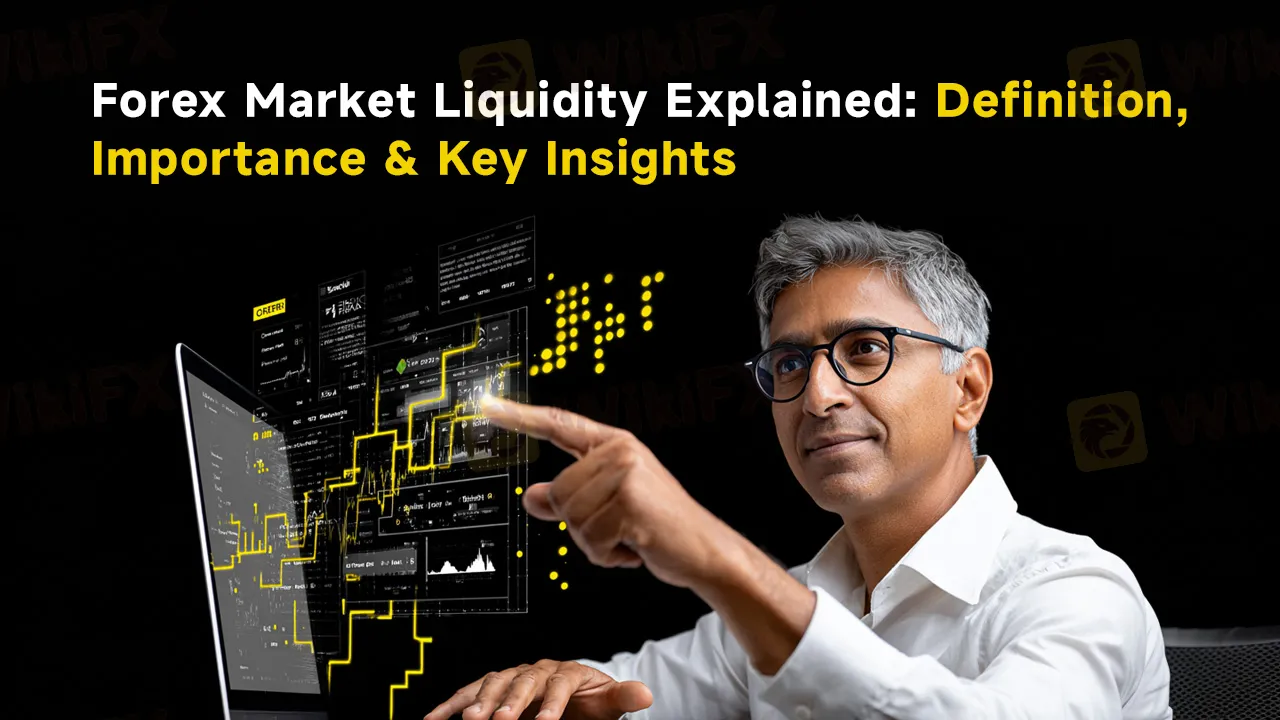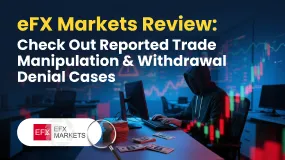Abstract:The global forex market involves the trading of different currencies worth trillions of dollars. It functions like a decentralized network of participants trading various currency pairs, with demand and supply forces influencing their pricing. Forex traders are not just individuals; they also include banks and other financial institutions. However, the forex market's liquidity is what keeps it growing. But what exactly is forex liquidity, and why does it matter to traders? Let’s find out in this article.

The global forex market involves the trading of different currencies worth trillions of dollars. It functions like a decentralized network of participants trading various currency pairs, with demand and supply forces influencing their pricing. Forex traders are not just individuals; they also include banks and other financial institutions. However, the forex market's liquidity is what keeps it growing. But what exactly is forex liquidity, and why does it matter to traders? Lets find out in this article.
What is Forex Market Liquidity?
The liquidity, in the context of foreign exchange markets, is about the ease and efficiency in the sale and purchase of a currency pair with no significant impact on the price. It indicates the availability of demand and supply for a currency pair that traders may be interested in trading. The forex market thrives on liquidity. As the forex market involves numerous participants and providers, transactions need to be settled quickly at a price near the real market value.
Expect high efficiency from markets with increased liquidity, allowing for seamless and quick order execution at a price near the market value. This ensures a low spread range and reduced slippage. Low-liquidity markets will have long pending orders with rates varying from the regular ones. The reason is a shortage in demand for the pair, resulting from a reduced number of buyers seeking it.
Why is Liquidity in Forex Important?
Liquidity is an important aspect of the forex market, as it allows you to ensure the balance and stability of the market. Here is how it ensures:
Fast Execution
In a high-liquidity forex market, traders enjoy fast order execution with reduced slippage (the difference between the desired price and the executed price).
Reduced Volatility
Markets with adequate liquidity will have less price volatility, ensuring a stable price market and reduced losses for the investor.
Tight Spreads
A spread refers to the gap between the purchase and sale price of currency pairs. With high liquidity, the spread is reduced, which results in lower transaction costs.
Factors Affecting Forex Market Liquidity
The forex market is a key determinant of how global trade plays out in reality. Any fluctuation in the forex currency pair can greatly impact trade agreements between nations and global investment. Although the forex markets liquidity is not constant, it has a baseline liquidity level. Traders can anticipate changes in the forex market and modify their trading strategies accordingly after understanding the factors that impact liquidity. These factors commonly include -
Market Size
It is one of the most important factors that impact liquidity in forex currency pairs. The high volume and global demand make the US Dollar, Euro, Japanese Yen and other popular currencies highly liquid.
Monetary Policy
Monetary policy announcements and interventions by the central banks worldwide significantly impact investors and market sentiment. This further impacts the liquidity of several currencies. News and events on the economic and political front further impact the market sentiment and the available liquidity across currencies.
Trading Hours
Major financial trading centres, for instance, New York, Tokyo and London have specific trading hours. During these hours, the liquidity remains higher. However, as you move past these hours, the liquidity can be reduced.
Factors That Help Measure Forex Liquidity
Spread
The difference between the buying and selling price is called a spread. It is an amount traders pay to the broker for these currency transactions. The tighter the spread will be the more will be the liquidity.
Trading Volume
The trading volume determines the extent of active foreign currency transactions between buyers and sellers. As the trading volume enhances, the liquidity goes up and falls with a drop in the trading volume.
Price Action
Price action also helps measure the forex market liquidity, with consistent pricing indicating a highly liquid market. Currency pairs or markets with enhanced price volatility remain less liquid.
Market Depth
It is defined as the number of orders placed in a market, typically the pending buy and sell orders. Too many orders mean a high number of traders and increased liquidity.
Conclusion
Forex market liquidity plays a vital role in ensuring smooth trading, stable pricing, and reduced transaction costs. High liquidity allows traders to enter and exit positions with ease, minimizing risks like slippage and sudden price swings. On the other hand, low liquidity can lead to volatile markets and higher trading costs. By understanding the factors that influence liquidity, such as market size, monetary policies, trading hours, and volume, traders can make smarter decisions and optimize their strategies.
Join WikiFX Masterminds for Trading Strategies That Shape Your Forex journey
Just follow these simple steps to be part of a thriving forex community.
1. Scan the QR code placed right at the bottom.
2. Download the WikiFX Pro app.
3. Afterward, tap the ‘Scan’ icon placed at the top right corner
4. Scan the code again.
5. Congratulations on becoming a community member.










